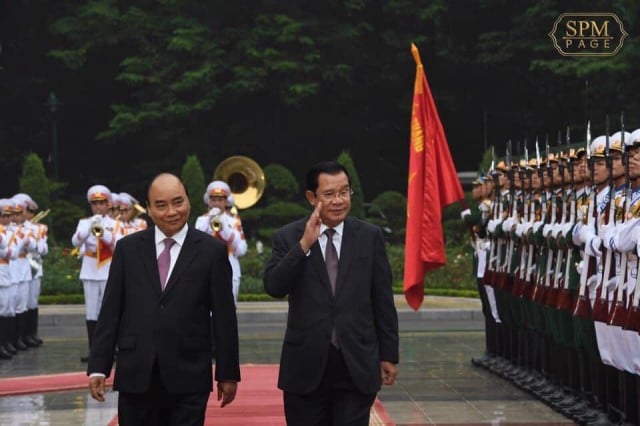Diversified Khmer Language Helps Foreign Pronunciation

- By Ky Soklim
- March 11, 2024 2:10 PM
PHNOM PENH – Diversity in the Khmer language enables Cambodians to pronounce foreign languages properly and learn them more quickly, phonologist Lim Bun Hok says.
The Khmer language consists of 33 consonants and 24 vowels, allowing speakers to pronounce other language sounds more accurately.
Bun Hok said the language is complicated with various forms of alphabetical characters and sound and a complex grammatical system.
However, the language has no up and down tones like languages of other countries, which makes it easy to pronounce almost all languages including English and French.
The ‘R’ sound in English and France might be the only exception, he said.
He said that the phonetics of Khmer language is really diversified.
“That make us pronounce other languages and learn them easily,” said Bun Hok who earned a master’s degree in phonology from France.
For Korean, Japanese or those using Arabic, they might find it hard to make sounds of another language since they have between three and five vowels which could be an obstacle to pronunciation, he said.
Apart from having more consonants, varied vowels and the ability to make sounds differently, the longer syllable is another advantage in Khmer language.
“It’s like vaccine. We have many vaccines which could protect against any diseases,” he said.
Bun Hok also said that in any language, there are differences between written and spoken words with Khmer being no exception.
When asked if such diversity makes it difficult for foreigners, he said “It’s a unique language. The learner must also follow the local practice.
“Step by step, when they speak, write and use more often, they become more habitual.”
Phonology had value in daily use of a language or in in-depth understanding of any language.
It could also play a role in specific sectors including telecoms, programming, artificial intelligence or even in the intelligence community which needs to understand a country’s language when gathering information.
Originally written in Khmer for ThmeyThmey, this article was translated by Torn Chanritheara for Cambodianess.















